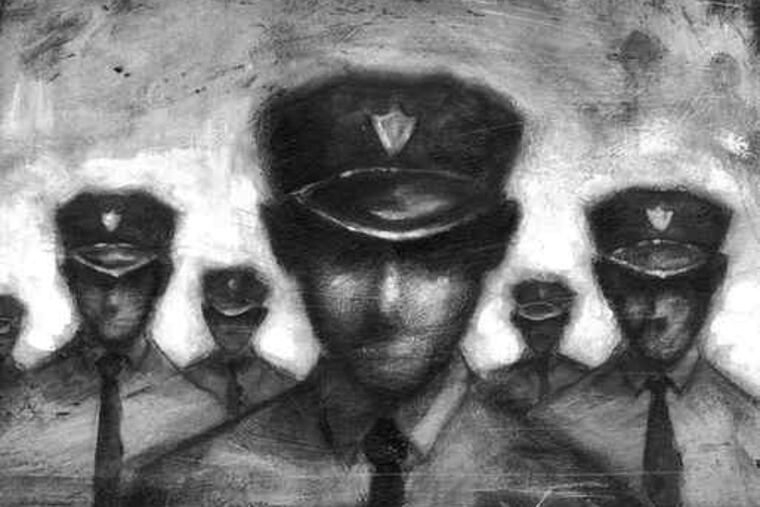
It's happening again. The finger-pointing that occurs every time a police officer is killed in Philadelphia. Which pretty much means the accusations of who is at fault are constant.
This city has had seven officers die in the line of duty in less than three years; an eighth who was wounded in a 1966 shoot-out with a robber also died during that period.
The latest victim is Officer John Pawlowski, 25, who was fatally shot Friday night by a robbery suspect when he responded to a report of a fight between a cabbie and another man. The suspect, Rasheed Scrugs, was critically wounded in an ensuing shoot-out with other officers.
Of course, anyone who pulls the trigger of a gun is ultimately responsible for that act. But responsibility also lies at the feet of a criminal justice system that seems incapable of stemming the violence that keeps staining the streets of Philadelphia with the blood of police officers.
Officer Pawlowski leaves behind an expectant wife. Our hearts go out to her and the Pawlowski family. He served this city with merit.
With Officer Pawlowski's death, the public once again is asking how someone with a criminal record as long as Scrugs' could be free to shoot anyone. The same question was asked after each of the four other police shootings since May 2006. It was asked after the deaths of the two officers killed in car crashes resulting from high-speed chases.
The police say it's not their fault that career criminals aren't in prison; they keep arresting them, but judges' sentences are too lenient.
The judges say it's not their fault; they follow proper sentencing guidelines, but the prisons don't use the time to effectively rehabilitate.
The prisons say they have good programs to rehabilitate inmates, but society doesn't provide the help returning felons need - a good job, for starters - to stay out of trouble.
Pennsylvania's prison system does deserve credit for dropping its recidivism rate from 46 percent in 2002 to 31 percent, but that's due in part to a change in the way it counts parole violators who are incarcerated for only a short period of time.
Also give the prison system credit for recognizing that locking the door and throwing away the key is not an option for most inmates. Very few are lifers. Most, including some who are violent, will get out one day.
Those who have not benefited from the prisons' programs to get them off drugs, educated, and job-ready are likely to end up in trouble again. But that can also happen with those who did well in prison only to return to family and friends who pull them back into old lifestyles.
So, every part of the criminal justice system must work harder. Police must keep making arrests. Judges must make the right sentencing decisions. Prisons must intensify their efforts to rehabilitate. But that's not all. Society must better prepare for returning inmates. Parolees must be monitored closely. Companies must provide more jobs.
And cities must be allowed to regulate firearms. It's impossible to keep all of the violent imprisoned forever, but it shouldn't be so easy for them to acquire the guns they use to kill.